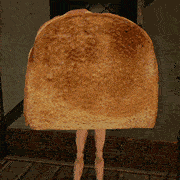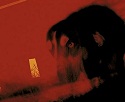|
Ok fine I will be niceAbalieno posted:I still believe that the woman's mind broke. And the more time passes the more it breaks, autonomously and not because of some patriarchal society that presses on. It's a descent into mental illness and self-harm. She's not autonomous anymore, she's not claiming individuality and agency by making her choice, she's just sending a SIGNAL THAT SHE NEEDS HELP. She needs help putting the pieces back together. But because she's surrounded by horrible people, the only help she gets is a shove. In the final part of the book this woman has completely shut down herself inside. She doesn't speak anymore to the world. She's removed from reality because (like Malazan's Mhybe) she's trapped in a "dreamworld". She shuts in. Now, the only way to survive is trying to breach that wall, trying to connect with her, and try to bring her out again, because otherwise she will only wither and die, exactly as all things that do not connect anymore to the outside world and that don't continue that taking/giving relationship. You give you take, the exchange keeps you living, because "life" is that, a symbiosis with an environment while trying to preserve your sense of self and sustenance. But she's locked in, trapped in that dreamworld and, left alone, she only descends further into that dream, the deep end. Completely sincerely, do you suffer from mental illness or do you have a close loved one who suffers from mental illness? Your steadfast insistence on putting her behavior in the grounded and specifically clinical suggests to me your own subject positioning makes you very drawn to this sort of interpretation. That's not a bad thing, mind you. Every reader brings their own background into a reading, but the emphasis you put on this reading makes me feel like there is something very personal about this interpretation. Abalieno posted:Both women are equally broken and sharing the same story. They are mirrored. But one dies, whereas the other lives. Why? Because one woman descended into herself. She didn't have a "real" husband to care for. She didn't have a real life to begin with. So she slips into her dreamworld where she isolates herself from everything else, until she dies. Further downward the spiral. But her sister, who's moving down the same path since they share the same beginning, has her son. The son is a life anchor to the world. A responsibility that keeps her "sane", in the sense that the son keeps her functional and connected to the outside world. She can't as easily cut the ties to her son as her sister cut her ties to her husband. I don't think there is a single line of text in the entire book to justify this interpretation. Mel Mudkiper fucked around with this message at 18:22 on Jul 5, 2016 |
|
|
|

|
| # ? May 4, 2024 20:20 |
|
Abalieno posted:Well, Malazan actually has undead raptor wizards that roam the world in their flying mountain fortress, and magic swords that contain portals to other dimensions (spoiler). To be blunt, do you know what they call Fantasy that has meaningful literary elements? Literature. Fantasy and Sci-Fi exist as a marketing term, not as an actual literary distinction. If your book is being sold as SciFi its because its publisher has already looked at it and determined it fits into one pre-determined market better than the others. And yes, "literature" fits into this distinction too. There is plenty of "literature" indistinguishable from "fantasy" or "scifi" if taken purely on merits of plot and themes. Blindness by Jose Saramago is my common go-to example. For a book to be sold as fantasy means the publisher has already looked at it and decided it was a certain kind of book for a certain kind of reader. I already know for a fact I am not that kind of reader and I am not interested in that kind of book. Abalieno posted:Donaldson's says ( http://www.nyrsf.com/2015/03/fantas...-truth-s-p.html ): Jesus if this is what counts as intellectual discourse in Sci-Fi no wonder people trash it Abalieno posted:WARNING: they have more than the 135 pages of The Vegetarian and actually require some concentration and effort to be understood. A. gently caress you, I've read my share of behemoths, quality is not measured by size. B. If you can barely make a meaningful interpretation of a 135 page novel why brag about reading an 800 page one. Mel Mudkiper fucked around with this message at 18:33 on Jul 5, 2016 |
|
|
|
Mel Mudkiper posted:I don't think there is a single line of text in the entire book to justify this interpretation. quote:The only times when the pain simply, miraculously ceases, are those moments just after she laughs. Something Ji-woo says or does makes her laugh, and then immediately afterwards she is left blank, empty even of pain. At such times, the sheer fact of her having laughed seems unbelievable, and makes her laugh again.
|
|
|
|
Abalieno posted:If her husband and Yeong-hye hadn’t smashed through all the boundaries, if everything hadn’t splintered apart, then perhaps she was the one who would have broken down, and if she’d let that happen, if she’d let go of the thread, she might never have found it again. Your own quote man. Your own quote.
|
|
|
|
Abalieno posted:Donaldson's says ( http://www.nyrsf.com/2015/03/fantasy-is-the-most-intelligent-precise-and-accurate-means-of-arriving-at-the-truth-s-p.html ): I don't think anyone should pay attention to what the author of a book called "Lord Foul's Bane" says about literature.
|
|
|
|
A human heart posted:I don't think anyone should pay attention to what the author of a book called "Lord Foul's Bane" says about literature. I am caught up on how weird it is try to define Post-Modernism from a quote by an out of print university publication from 60 years ago instead of, say, something from Jean-Francois Lyotard or Foucault. Or the fact that he claims to be a scholar of Faulkner while repeating one of Faulkner's most famous ideas and acting like he came up with it himself. This whole paper feels like somebody walking into a Ford factory and claiming to be a genius because he just invented the wheel. This is freshman level literary analysis pretending at genius. It is also wildly insecure and superficial. EDIT: Also lol that half of his citations are of himself. Mel Mudkiper fucked around with this message at 00:51 on Jul 6, 2016 |
|
|
A human heart posted:I don't think anyone should pay attention to what the author of a book called "Lord Foul's Bane" says about literature. Minor point because I think that book sucks but technically it's a deliberate satire of the genre and the corniness of that name is intentional.
|
|
|
|
|
Hieronymous Alloy posted:Minor point because I think that book sucks but technically it's a deliberate satire of the genre and the corniness of that name is intentional. Is his article supposed to be a satire of a self-important dilettante trying to inflate his own ego in the face of crippling insecurity Because if so, loving bravo
|
|
|
Mel Mudkiper posted:To be blunt, do you know what they call Fantasy that has meaningful literary elements? Literature. Well, marketing isn't the definer of quality. There is *some* stuff marketed as SF that is still worth reading as "literature." Lord Dunsany springs to mind as the clear example. Personally I wouldn't include Malazan in that category but that's just my opinion. A year or so I put extra apostrophes in the Malazan thread title and nobody noticed for months.
|
|
|
|
|
Hieronymous Alloy posted:Well, marketing isn't the definer of quality. There is *some* stuff marketed as SF that is still worth reading as "literature." Lord Dunsany springs to mind as the clear example. What I meant was that literature and scifi don't actually exist. My larger point is that any human idea pops if we squeeze it hard enough. Art, literature, the novel, even language itself is a loosely conceived idea that only exists because most of his can sort of agree with what it means when we say it. If you try to deconstruct the differences between "literature" and "genre fiction" you inevitably going to disentangle thousands of assumptions about class, merit, thought, ethics etc. In the end, there is nothing really objective that makes Shakespeare more literary than a Mexican takeout menu. Its just all a big wobbly jenga tower of assumptions we make about ourselves and the world around us. Which is why articles like "Why fantasy is just as serious as literature" are tedious. Literature isn't actually some objective diamond of human creativity we can measure and aspire to. Everything we think about right now as "genre" are really just marketing terms. SciFi, Fantasy, Romance, Literature, are not actually designations of quality of theme, they are descriptors of the people it is assumed will like the book. Modern genre is about identifying the reader more than it is about defining the text itself.
|
|
|
|
Hieronymous Alloy posted:Minor point because I think that book sucks but technically it's a deliberate satire of the genre and the corniness of that name is intentional. that's stupid
|
|
|
Mel Mudkiper posted:Modern genre is about identifying the reader more than it is about defining the text itself. Right right -- not disagreeing at all, and I might steal your phrasing in future, that's very well put. One quote I keep coming back to in discussions of genre and what is/isn't "literature" is from Raymond Chandler, in The Simple Art of Murder, describing the work of Dashiell Hammett: quote:
http://www.en.utexas.edu/amlit/amlitprivate/scans/chandlerart.html Any genre term will, as you say, pop if you squeeze it hard enough, but the corrollary to that is that almost any genre has something in it that's worth reading. There's something in the local Barnes and Noble fantasy section that you'd profit from reading, almost certainly. Mel Mudkiper posted:Is his article supposed to be a satire of a self-important dilettante trying to inflate his own ego in the face of crippling insecurity Didn't read it so can't say! Erickson (Malazan author) and Donaldson are like my two least favorite fantasy/sf writers. Donaldson is way too rapey for me and Erickson doesn't know when to stop putting apostrophes be'tween a'll the syll'abl'es. Hieronymous Alloy fucked around with this message at 07:19 on Jul 6, 2016 |
|
|
|
|
Finished up reading, and noticed that this thread hasn't really explored much of the implications in the sister's chapter. Did anyone else feel like the sister took advantage of her out of some type of punishment, or cruelty? She comes to her sister's house to find that her husband has raped/taken advantage of her mentally ill sister who's grasp on reality is scant, and instead of just arresting/punishing her husband, she has the emergency response team basically attack her sister. They grab her, strap her down, pull her away as she kicks and screams, and the sister silently watches from afar, admonishing her as if she deserves it, justifying that it's "for her own good". She seems to feel more regret for her husband's actions because it made her lose her husband instead of how her sister's been a victim in this situation. She thinks about how much of a good wife/daughter she's been, and thinks about how impotent she's been in any interaction where her sister's been a victim (with moments reflecting on her sister's husband, her own husband, and her father), and it always seems to steer back to how it's her sister's fault, and not her own for never helping or standing up for her. It's interesting, because she sits and tries to force-feed her sister things that are healthy and that her sister should enjoy, like watermelon, and she reflects on the memories that the foods bring of happier days, as if this will cure her sister from the inside out, but can't grasp the reality that the damage is done. It's always been someone else that's hurt her sister, as if her own impotence didn't contribute. Her sister's devouring itself from the inside from the world's cruelty, and she can only be bothered/work up the courage to see her once a week at most, once a month at least. There's a point where the sister thinks about how they had the same upbringing, but the father only abused Yeong-hye, never her or her brother. She reflects that she could have done something, but sees the cruelty as inevitable. As if standing up to the abuse or trying to seek help would only cause more cruelty, or be useless.
|
|
|
|
Hieronymous Alloy posted:http://www.en.utexas.edu/amlit/amlitprivate/scans/chandlerart.html Oh yeah I don't really disagree with that. However, every time I've read a fantasy book that people swear is great I have been left underwhelmed. I've done Tolkein, Martin, Gaiman, etc and just been kind of blah. Hell, I've even given total garbage a shot like Piers Anthony and Terry Brooks. Honestly I have considered giving the BOTM this month a shot just for the sake of branching out. I just do not know if I want to put the time into something I may not end up enjoying or finding meaning from. I just do not think I am the kind of reader intended for that genre and I have kind of given up trying to let people prove to me that I am. Franchescanado posted:Finished up reading, and noticed that this thread hasn't really explored much of the implications in the sister's chapter. While I do not think her actions were as deliberate or malevolent as you describe, I do generally like this interpretation. Mel Mudkiper fucked around with this message at 13:35 on Jul 6, 2016 |
|
|
|
Mel Mudkiper posted:While I do not think her actions were as deliberate or malevolent as you describe, I do generally like this interpretation. I only meant the initial use of the emergency response team to attack the sister as malevolent. But I think that's more out of shock or grief at the situation, not an act of cruelty to consciously punish. I think it's boiling under the surface, but she's not aware that she HERSELF is being cruel to her sister. Kinda like how we will act for good intentions, but the actual actions are cruel/hurtful. (EDIT: Or the idea of sadism/cruelty being brought out by seeing reflections of ourselves we dislike. She sees her husband has hosed up her sister's life (again) and subconsciously sees herself lying on the floor, and it creates a masochistic urge.) That's how I see it: the sister seems to have good intentions, but her actions (or lack thereof) still contribute to the cruelty of the world. She also can't help but think about her own well-being above her sister, even though everything around her is showing her that she could very easily be in her position. She mentions briefly that she's going through her own mental breakdown, with insomnia and poor eating choices, but instead lingers on ideas of being without a husband or how her sister's deteriorating. I especially like the moment where she and Yeong-hye are going to the clinic, and the nurse has to ask them which is the patient. Franchescanado fucked around with this message at 13:43 on Jul 6, 2016 |
|
|
Mel Mudkiper posted:Oh yeah I don't really disagree with that. However, every time I've read a fantasy book that people swear is great I have been left underwhelmed. I've done Tolkein, Martin, Gaiman, etc and just been kind of blah. Hell, I've even given total garbage a shot like Piers Anthony and Terry Brooks. That's fair. Honestly I'm having a hard time thinking of fantasy you'd like. You seem like the literary equivalent of a pure black triple roast coffee drinker and fantasy is usually about the cream and sugar, as it were. You *might* like Gene Wolfe but he's really, really Catholic so you might not find him appealing either. Maybe some of Lord Dunsany's short stories (the thing I always recommend is "Idle Days in the Yann", which is free with a Google search). Hrm. I'd also suggest looking up "A Rose for Ecclesiastes" by Roger Zelazny. That's it, that's my genre lit rec for you. (Technically it's SF but Zelazny blends sf &f). Also a short story and you can probably find it with Google, so minimal investment of time / energy.
|
|
|
|
|
maybe Lord of Light?
|
|
|
|
It is kind of ironic that for how generally disinterested I am in fantasy my favorite literary sub genre is Magical Realism.
|
|
|
|
Maybe because the title/genre itself promises "Realism"? I tried looking through my GoodReads shelves for actual traditional fantasy books I've read and all I could find was The Hobbit, a few Discworlds and Bridge of Birds. The rest were magical realism.
|
|
|
|
Mel Mudkiper posted:It is kind of ironic that for how generally disinterested I am in fantasy my favorite literary sub genre is Magical Realism. This month's book is basically magical realism, though of a more prosaic version than you're in to - it's not bad, and deeply rooted in folk tales. It's hard to get away from Fantasy as a genre being moribund though. It just has nothing to offer, apart from being some kind of comfort blanket. Hieronymous Alloy posted:Any genre term will, as you say, pop if you squeeze it hard enough, but the corrollary to that is that almost any genre has something in it that's worth reading. There's something in the local Barnes and Noble fantasy section that you'd profit from reading, almost certainly. It's really difficult for me to agree with this. Yes, there may be some small benefit, but it's so slight that you'd be better off daydreaming. More than that there's an opportunity cost - that time spent reading that crap could be much more profitably spent elsewhere.
|
|
|
|
Mel Mudkiper posted:I just do not think I am the kind of reader intended for that genre and I have kind of given up trying to let people prove to me that I am. That's amusing. You don't notice the contradiction, do you? On one side you say literature has no genre (of course, taxonomy is always arbitrary), then you say you can't read fantasy or sci-fi because you aren't "that kind of reader". So you do recognize the genre and use it to decide what to read. The genre distinction dictates what you read and what you like, but then you are smart enough to declare this boundary doesn't actually exist? It exists for YOU and determines what you do and what you like. That counts as "existing", for me. The perceived distinction between literature and genre fiction is just that, for a whole lot of people is a marker of quality. Today a certain type of "literature" is itself a genre, and it defines its identity and types of readers. It's exactly the same. I'll offer a quote by Scott Bakker that applies splendidly to you: quote:So he simply declares that he has never heard anyone in his ingroup explicitly dismiss genre–as if only those who explicitly embrace bigotry can be bigots. And as if he and his cohort don’t regularly deride the ignorant masses via their ignorant tastes. https://rsbakker.wordpress.com/2013/07/04/russell-smith-shrugged/ And some other bits of quotes: quote:Given that the whole point of importing ‘literary’ complexities into epic fantasy was to reach out, to short circuit the way technology allows us to spontaneously group ourselves according to patterns of cultural consumption, to cleanse the incipient heretics from our reading lists Abalieno fucked around with this message at 02:30 on Jul 7, 2016 |
|
|
knees of putty posted:It's really difficult for me to agree with this. Yes, there may be some small benefit, but it's so slight that you'd be better off daydreaming. More than that there's an opportunity cost - that time spent reading that crap could be much more profitably spent elsewhere. If you've looked at a B&N fantasy section lately, it's not all wheel of time and so forth. Usually they'll have a few older authors with some merit as well. I mean, Lovecraft for example is worth reading at least a little bit of no matter what your taste is, just because his work is such a part of the cultural zeitgeist.
|
|
|
|
|
Hieronymous Alloy posted:If you've looked at a B&N fantasy section lately, it's not all wheel of time and so forth. Usually they'll have a few older authors with some merit as well. I mean, Lovecraft for example is worth reading at least a little bit of no matter what your taste is, just because his work is such a part of the cultural zeitgeist. So your canon is the author needs to be dead to be good? Come on, you all. Just admit you're ignorant. You don't know what you talk about and, indeed, you cannot pick up a random fantasy book and have a great chance it's good. It happens exactly the same for the rest of literature. So what you do? Have to rely on the "Man Booker" to tell you what's good, or need to have a huge impact on culture, like Lovecraft, so that you are persuaded to look. A number of hypocritical posts to declare there are no genres, and then the voice of truth: quote:time spent reading that crap could be much more profitably spent elsewhere. "That crap" is genre fiction, of course. As if only those who explicitly embrace bigotry can be bigots.
|
|
|
|
Abalieno posted:On one side you say literature has no genre (of course, taxonomy is always arbitrary), I never said this ever and your entire argument is meaningless because it is based on this presumption of a belief I do not have Also, quit linking these huge quotes of hackneyed bullshit from sci-fi writers insecure about their own legacy. Abalieno posted:So your canon is the author needs to be dead to be good? It is becoming ever more clear you have some serious insecurities about being a fan of Science Fiction/Fantasy and your one man crusade against the literary establishment is tedious. Mel Mudkiper fucked around with this message at 03:19 on Jul 7, 2016 |
|
|
|
Mel Mudkiper posted:Fantasy and Sci-Fi exist as a marketing term, not as an actual literary distinction. If literature has no distinction of genre, why is it that you decide what to read based on its genre?
|
|
|
|
Abalieno posted:If literature has no distinction of genre, why is it that you decide what to read based on its genre? because literature is a marketing term just like scifi and fantasy and I acknowledge that I am most comfortable in that market
|
|
|
|
Abalieno did you ever go back and read the second section of the book, or are you still arguing it's terrible based on 2/3rds of it? I didn't participate in the discussion b/c I read The Vegetarian a couple of months ago, but I really disliked it right after finishing it then decided I liked it after thinking about it for a day or two, which for me is usually a mark of good literature. My main takeaway from it was that nearly everyone in the narrative was so self-focused that they refused to reach out to a mentally ill family member until it was too late. Even the sister's internal monologue in the last section has this tinge of "wow, she seemed like such a nice person before all this - what if this happens to me, oh I hope it doesn't happen to me." By the end of the book they're basically shutting her away in a leper colony. It was very depressing and made me think about how my family and friends would react if I suddenly started acting in a way contrary to social norms, and conclude that my own story might not be much better than the main character's.
|
|
|
|
Abalieno posted:
Not at all. I enjoy a lot of genre fiction. I've read a lot of fantasy in the past, but I rarely find it has something new to offer. I think the only exception that I can readily think of is Earthsea and in particular the last book, but you know, opinions vary.
|
|
|
|
Abalieno posted:"That crap" is genre fiction, of course. As if only those who explicitly embrace bigotry can be bigots. are you the one who wrote this
|
|
|
|
Heh, I'm not sure it's elitist to think Gibson, Stephenson and Martin can't write for poo poo.
|
|
|
|
That article and mindset is cool in a lot of ways but especially because it puts forward the viewpoint that genre fiction readers are a persecuted minority and not the majority of people reading books in the world today
|
|
|
|
Abalieno you are a very bad advocate for SFF and you should probably stop posting right now. I'm speaking as someone who has a bookshelf of the likes of Moorcock, Smith, Vance, Finney, Holdstock, Zelazny, Wolfe, Swanwick, Butler and so on next to me as I post, so this isn't one of your hated ~*literature*~ oppressors saying this. For your own sake just slink off. I can't get over someone using a Bakker quote as some sort of genre defense shield, of all the authors you could have picked, and also that Bakker equates people who don't like genre with bigotry, fukken lol Lightning Lord fucked around with this message at 20:35 on Jul 8, 2016 |
|
|
|
A very good look at the literary vs genre debate can be found here: https://electricliterature.com/when-popular-fiction-isn-t-popular-genre-literary-and-the-myths-of-popularity-2dd431a44a53#.t73hxuf5n With some relevant quotes below: quote:Take Damien Walter’s article in The Guardian claiming that “Literary fiction is an artificial luxury brand but it doesn’t sell.” Walter pretends he is attacking the literary snobbery, yet the piece is overtly condescending toward readers of books Walter looks down upon. For Walter, people who read “high-end literature” only do so because they (falsely) think it “make(s) you look cool” while readers of genre fiction are people who buy books “because they love them.” It isn’t just that literary fiction doesn’t sell, but its readers are poseurs who don’t even actually like books! Claiming anyone who reads books you don’t like is a fake reader who buys books out of bad faith is about as snobbish as you can get.
|
|
|
|
Lightning Lord posted:Abalieno you are a very bad advocate for SFF and you should probably stop posting right now. I'm speaking as someone who has a bookshelf of the likes of Moorcock, Smith, Vance, Finney, Holdstock, Zelazny, Wolfe, Swanwick, Butler and so on next to me as I post, so this isn't one of your hated ~*literature*~ oppressors saying this. For your own sake just slink off. I wasn't advocating anything, just pointing out the contradictions in the argument of a poster. That discussion spawned from the fact there are fantasy books that deal with "literary" themes. But some readers come with prejudices, and so stop at the cover. Or just lump everything together to more easily dismiss it while keeping their literature clean from "impurities". It's like a well tended garden. I absolutely do not care, nor care to discuss the fact some readers mock and ridicule sci-fi/fantasy readers. It doesn't touch me. This representation is upside down: the type of reader Mel Mudkiper represents is a reader that stops at the cover jacket. Fantasy or sci-fi will stop him. Genre, for him, builds a fence that determines what he can or cannot read. That's his own self-imposed limit and he himself is the only victim of such prejudices. He limits himself to what he's comfortable to read, without realizing it's the same behavior he accuses genres readers: of not exiting their comfort zone. But genres readers, because they feed on a wider culture and don't have to very carefully select their stuff on the premise of purity or moral superiority, because they already come from the popular level, don't usually come with prejudices and don't build fences around what they can or cannot read. I'm not even a "genre" reader, I only mostly seek ambition and certain themes and patterns. I read Parallel Stories by Peter Nadas a few months back, I read Vollmann, William Gass. I await both Alan Moore's Jerusalem and Schmidt's Bottom's Dream in September. I read books that usually no one reads or wants to read. One of the last I bought is the collected novels of Flann O'Brien. Some of these are considered so niche and elitist WITHIN the Literature as a genre. Do you think "literature" or genre scare me? There are no quality ranks embedded in genres for me. I don't decide whether to read or not a book depending on the cover or the genre the book is marketed at, and I don't come with prejudices. As I said I like a certain kind of literary ambition. The great majority of fantasy and sci-fi don't have a whole lot of ambition and comfortably sit in the genre to just match expectation and give the reader what he demands. EXACTLY as it happens within "Literature" as a genre. But, again, if you know where to look there are plenty of amazing things, and they can rank as high as, or higher, the best the "official" literature can offer. On top of the fact that the "literature" genre, as Bakker says, in order to keep its own garden clean from contamination, in order to maintain a sense of identity and distinction from what outside and still claim a certain superiority, ends up endlessly repeating itself, and so just becoming trite redundancy. That's why within genre is even more likely to find something innovative. There are less rules, less requirements to respect, less boundaries. Less prejudices overall that censor the range of what you can write about and how. Genre fiction itself is made of endless contamination, and that's a good thing that will keep it relevant. Abalieno fucked around with this message at 02:01 on Jul 9, 2016 |
|
|
|
Abalieno posted:That discussion spawned from the fact there are fantasy books that deal with "literary" themes. But some readers come with prejudices, and so stop at the cover. Or just lump everything together to more easily dismiss it while keeping their literature clean from "impurities". It's like a well tended garden. If you have such a bone to pick with pompous elitist literature types take it to the literature thread. Plenty of people would probably be willing to be the evil fantasy hating villain you keep wanting me to be. I am getting a little tired of you turning me into some elitist strawman just so you can toss word salad at it. Abalieno posted:On top of the fact that the "literature" genre, as Bakker says, in order to keep its own garden clean from contamination, in order to maintain a sense of identity and distinction from what outside and still claim a certain superiority, ends up endlessly repeating itself, and so just becoming trite redundancy. I am overwhelmed by the irony of this sentence. Mel Mudkiper fucked around with this message at 02:17 on Jul 9, 2016 |
|
|
|
Abalieno posted:
So far you have praised William Vollman: Europe Central 832 pages, The Dying Grass 1376 pages Peter Nadas: Parallel Stories 1152 pages, The Book of Memories 720 pages William Gass: The Tunnel 632 pages Alan Moore: Jerusalem 1280 pages Arno Schmidt: Bottom's Dream 1496 pages John Sayles: A Moment in the Sun 968 pages R Scott Bakker: The Darkness that comes before 608 pages I hate to break it to you, but I do not think your tastes are as universal and unbiased as you think. Plus, you know, this Abalieno posted:Want serious actual literature? Here some examples:
|
|
|
|
you literally rambled into a thread about minimalist Korean literary fiction to explain that you didn't read the book but everyone should read Prince of Nothing instead because it's what real literature looks like. I have a huge soft spot for fantasy and will hold up Malazan as a genuinely great series if you can get over the typical fantasy nonsense it's filled with (to its detriment), but you literally started this argument over nothing except maybe Mel saying it's not his kind of book, which makes you insane. I'm sure you have genres you aren't particularly interested in as well, and that's also legal and ok. The book of the month this month is fantasy, imagine if someone who really really loves crime fiction barged into that thread and started shouting at people that they should be reading Inspector Rebus novels instead. Chill out, nobody's loving persecuting you. Mel Mudkiper posted:So far you have praised [dongs]
|
|
|
|
Lunchmeat Larry posted:you literally rambled into a thread about minimalist Korean literary fiction to explain that you didn't read the book but everyone should read Prince of Nothing instead because it's what real literature looks like. No, I brought up Malazan because the Mhybe shows a direct crossing of themes with this book. Then people proceeded to mock it and chuckle about it because it has elves in it. If you look back the first book I quoted in comparison with this one is: "The Vorrh", by B. Catling. I was just mentioning examples of stuff that executes certain aspects shared with The Vegetarian, but a lot better. The Vegetarian has dream sequences used to elevate its metaphor, I explained that it attempts a certain mystifying angle on its metaphor that is more typically found in genre fiction, and does it very poorly. This was brought up because The Vegetarian attempts certain things that are common in genre fiction, in the way it spins its metaphor. But readers who shun genre fiction of course don't know, and so applaud a weak book like this one and admire it because it's "haunting" even if its message is trite and shallow. It's as if certain people in certain circles applauded what The Vegetarian does because it attempted certain novel things in literary fiction, but just because they don't know those same things are typical and better executed in genre fiction. Genre fiction without "genre", so that it appeared palatable to certain literary establishment that otherwise would turn its nose. quote:I'm sure you have genres you aren't particularly interested in as well, and that's also legal and ok. The book of the month this month is fantasy, imagine if someone who really really loves crime fiction barged into that thread and started shouting at people that they should be reading Inspector Rebus novels instead. Chill out, nobody's loving persecuting you. The mistake isn't about liking or not liking a particular genre personally. The mistake is about thinking that a certain quality is exclusive to that particular genre you prefer. Mel Mudkiper posted:I hate to break it to you, but I do not think your tastes are as universal and unbiased as you think. I did say I like big books that do certain specific things, yes. You could make a case where "big book" make a genre, so I do enjoy a particular genre of book too. But this isn't about not having particular preferences in the books I read. Everyone has. The difference is coming to a book with biases. I certainly don't dismiss a book because it's "short". In fact I did check out The Vegetarian and I had the intention of reading it fully because I was intrigued by what it wanted to do. Its failure isn't because it's short, but because while reading it I thought it was bad for the reasons already explained. The same as I checked The Vegetarian I checked Mo Yan's Republic of Wine and Life and Death Are Wearing Me Out, when he won the Nobel, neither stands out as particularly long, and they ARE excellent. A book wins a prize and it draws attention, that's just about it. If I was shaming Mel Mudkiper because he likes certain "literary" books I would REPEAT the same mistake he did (and notice that when I criticize a certain literary circle I don't criticize the garden itself, but the practice of those who tend it). And besides, I don't even know what he usually reads to make that case. I instead did point out that he admitted he judges a book by its cover when he said that if he realizes a book is sci-fi or fantasy he looks away. In this case of The Vegetarian, where the style and themes ARE, in my opinion, typically found in genre fiction, it means Mel Mudkiper appreciated a certain "argument" here, but otherwise dismissed it on the premise of "genre". Abalieno fucked around with this message at 07:14 on Jul 9, 2016 |
|
|
|
Pompous rear end who uses too many words to make his point loves books by pompous asses who use too many words to make no point at all. How surprising.
|
|
|
|

|
| # ? May 4, 2024 20:20 |
|
Abalieno, take it from someone who doesn't really have a horse in this race - your posts are so disproportionately venomous and self-righteous that most of this just screams projection.txt. You don't seem to be actually reading Mel's posts, just sort of skimming them, pulling out the odd word or two that suits your own prejudices, and then using that to build a crazy strawman to attack. It's much like what you did with The Vegetarian by skipping sections and skimming it because you saw what you expected to see in it and didn't want to look any deeper or have to engage with the book as a whole. Everything is pretty black and white when you strip things of their context and pull out pieces here and there to suit your prejudices. I get that you really love the Malazan books and are extremely invested in them. When you invest a lot of time and energy into something over a long period of time, and someone doesn't like that thing, it often feels like a rejection of your own identity, even though it really has nothing to do with you. You are coming across as very insecure about your own identity as a reader and desperate to project those insecurities on the figure of someone else (Mel, in this case) so that you can fight a battle that's mostly just happening in your own head (in the sense that you keep coming back determined to resume a battle that has little to do with the BOTM and everything to do with your own prejudices).
|
|
|






















